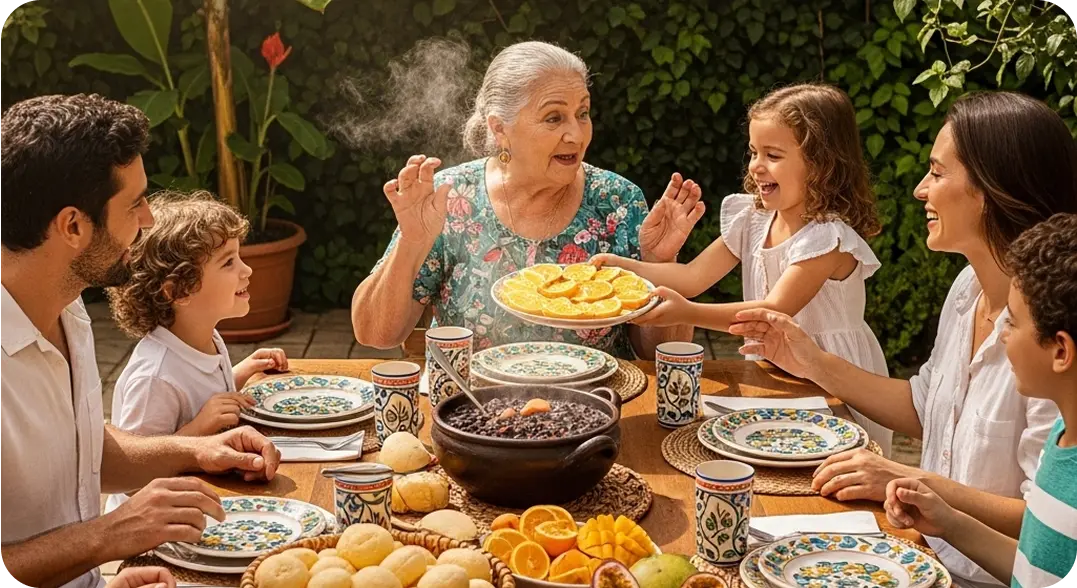Learn Portuguese with Rosetta Stone
See current dealsPortuguese is spoken by more than 250 million people worldwide – and in Brazil alone, over 200 million people use it every day. Brazilian Portuguese is lively, musical, and full of regional variety. Learning it connects you to Brazil’s culture, from samba and bossa nova to literature, film, and everyday conversation.
Whether you’re learning for travel, career, or personal growth, you can start building real communication skills right away. You don’t have to be perfect – you just have to begin. With the right tools, progress comes faster than you think.
Why learn Portuguese?
Portuguese is the sixth most spoken language in the world and Brazil is home to the largest community of Portuguese speakers. It’s also one of the fastest-growing global languages, making it valuable for travel, business, and cultural exchange.
Whether you’re visiting Rio de Janeiro, expanding your career opportunities, or connecting with Brazilian friends, learning Portuguese helps you participate fully and confidently.
Top reasons to learn Portuguese
- Speak with millions: Over 200 million people in Brazil speak Portuguese every day.
- Travel smarter: From São Paulo to Salvador, Portuguese makes traveling in Brazil richer and easier.
- Grow your career: Brazil is a major economy with growing influence in global trade and business.
- Access culture: Enjoy Brazilian films, literature, music, and festivals in their original form.
- Learn for life: Mastering Portuguese boosts memory, confidence, and communication skills.
Portuguese language basics
Where is Portuguese spoken?
Portuguese is the official language of Brazil, Portugal, Angola, Mozambique, Cape Verde, Guinea-Bissau, and São Tomé and Príncipe. Brazilian Portuguese is the most widely spoken variety, known for its warm, expressive sound.
How long does it take to learn Portuguese?
It depends on your goals, but daily practice makes a big difference. Even short sessions (10–15 minutes a day) help you improve. With consistent practice using Rosetta Stone, you can understand and speak basic Brazilian Portuguese within weeks.

Portuguese proficiency: from beginner to advanced
Beginner
Learn greetings and simple phrases: Oi (Hi), Obrigado/Obrigada (Thank you)
Introduce yourself and ask basic questions
Practice essential verbs like ser (to be), ter (to have), querer (to want)
Intermediate
Use present, past, and future tenses
Order food at a churrascaria, ask for directions, and manage everyday conversations
Write simple texts and hold short conversations
Advanced
Express opinions, emotions, and abstract ideas
Use complex grammar and nuanced vocabulary
Read Brazilian literature, follow the news, and enjoy films without subtitles
Core Portuguese skills
Pronunciation tips
Brazilian Portuguese pronunciation has a few unique features:
- Nasal vowels:
Words like pão (bread) and mãe (mother) use nasal sounds made through both nose and mouth.
- Open vs. closed vowels:
Vowel quality changes meaning. For example, avó (grandmother) vs. avô (grandfather).
- R sounds:
At the start of words or in “rr,” it’s pronounced like a throaty h – for example, rio (river). Between vowels, it becomes softer, closer to an English d/t or light flap – for example, caro (expensive).

Vocabulary and origins
Portuguese comes from Latin and shares roots with Spanish, French, and Italian. Brazilian Portuguese also includes influences from Indigenous languages, African languages, and more. Examples include:
- família (family)
- cidade (city)
- história (history, story)
Useful phrases
- Oi – Hi
- Tudo bem? – How’s it going?
- Obrigado/Obrigada – Thank you (male/female speaker)
- Por favor – Please
- Você pode me ajudar? – Can you help me?
Portuguese verbs
Brazilian Portuguese verbs change by tense, mood, and person. For example:
- Eu falo – I speak
- Ele falou – He spoke
- Nós falaremos – We will speak
Nouns and gender
Portuguese nouns have gender: masculine (o carro – the car) and feminine (a casa – the house). Articles and adjectives must agree with the noun in gender and number.
Best ways to learn Portuguese
- Online: Study anytime with Rosetta Stone on desktop or mobile. Sign up now!
- Classroom learning: Structured group practice with peers.
- Private tutoring: 1-on-1 lessons focused on Brazilian Portuguese. Browse Portuguese tutors on Wyzant, the nation’s largest tutoring network.
- Language exchange: Speak with Brazilian native speakers.
- Immersion: Travel or live in Brazil to practice in real-world situations.
Media and tools to support learning
- Books: Start with children’s stories or simplified novels in Portuguese.
- Music & podcasts: Listen to bossa nova, MPB, sertanejo, or learner-friendly podcasts.
- TV & films: Watch Brazilian shows with Portuguese subtitles for vocabulary practice.
- Quick assessments: Use speaking and writing tests using Emmersion to track progress.
Learn Portuguese with Rosetta Stone
Rosetta Stone helps you build confidence and fluency in Brazilian Portuguese:
Real-world speaking practice
Voice recognition fine-tunes pronunciation.
Clear grammar support
Learn step by step, without overwhelming rules.
Smart review
Spaced repetition helps you remember vocabulary and grammar.
Cultural insights
Discover Brazilian traditions, expressions, and everyday life.

Take the first step
Rosetta Stone offers a free first lesson so you can start immediately. Whether you’re learning Portuguese for work, school, travel, or personal enrichment, Rosetta Stone will guide you every step of the way.
Get startedWhat’s included with your subscription
Achieve fluency faster with Rosetta Stone’s expert-designed Dynamic Immersion courses.
Perfect your accent with TruAccent speech recognition technology and sound like a native speaker.
Access to Rosetta Stone on web or mobile—learn anytime, anywhere!
About Learning Portuguese with Rosetta Stone
On Rosetta Stone, learners develop Portuguese skills through interactive lessons that combine listening, speaking, reading, and comprehension in meaningful contexts. Pronunciation exercises help learners produce accurate sounds and rhythms, whether focusing on Brazilian or European Portuguese. Vocabulary and grammar are introduced naturally through activities and images, allowing learners to internalize patterns without relying on translation. Live tutoring on the website provides guided conversation practice, helping learners apply lessons in real dialogue and build confidence in speaking.
Learning Portuguese involves mastering core vocabulary, essential grammar, and common phrases for everyday communication. Many learners start with greetings, verbs, and simple sentences, gradually expanding their skills through consistent practice. Listening to spoken Portuguese in media such as podcasts, music, or videos reinforces pronunciation, rhythm, and comprehension. Combining structured exercises with immersive exposure supports steady, practical progress in both Brazilian and European Portuguese.
Learners can apply Portuguese skills by incorporating short, consistent practice into daily routines at home or while traveling. Reviewing common phrases aloud, practicing verb forms in writing exercises, or listening to Portuguese media helps reinforce comprehension and pronunciation. When paired with the structured lessons and tutoring support available on the website, these habits help learners steadily improve. With regular engagement, learners gain the confidence to communicate effectively and connect with Portuguese-speaking communities and culture.

